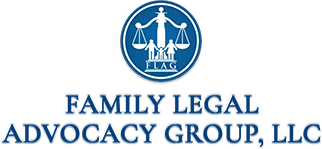When a relative becomes disabled, providing daily assistance can be challenging for family members. Whether searching for a place to live, locating transportation, managing finances or addressing medical needs, the tasks can be never-ending and all-consuming. Having to deal with legal issues that center on gaining access to make decisions can be confusing and frustrating, but the legal system can help through the guardianship process.
While obtaining guardianship over a disabled relative can be challenging, understanding the process for obtaining guardianship is key to a successful outcome.
There are two types of guardianship: guardianship of a person grants the guardian with authority over the individual’s life issues that affect their well-being such as medical decisions and where he or she resides. Guardianship of the property grants the guardian with authority to make financial decisions for the disabled individual, including managing his or her money and assets and paying for his or her expenses from his or her assets.
It is important to understand the responsibilities associated with being a guardian and how a relative is determined to be disabled. According to Maryland law, a “court-appointed guardian” is a person who takes care of our most vulnerable citizens. A “disabled person” is an individual who is unable to take care of themselves due to age, disease or disability.
A “disabled person” lacks an understanding of his or her situation or lacks the capacity to make proper decisions concerning his or her person which includes health care, clothing, food, and shelter. The disability could be due to cognitive disorders, mental health conditions, alcoholism, drug addiction or other health impairments that limit the disabled person’s decision making.
When a Guardianship Petition is filed, the parties to the guardianship case in the Court include:
- The person who is alleged to be disabled.
- The petitioner who wants to be the guardian.
- Interested persons who want to assist the petitioner in the disabled person’s care or people who are classified as “interested persons” by Maryland law.
- Interested persons may include the alleged disabled’s family members (parents, spouse, children, grandchildren, siblings), a nurse, an attorney, any government agency paying benefits to the alleged disabled person, and or other individuals who play a key role in the individual’s life.
When someone is petitioning the court for guardianship, some of the items the petitioner must provide are:
- Prospective guardian’s name, location, and information about any criminal records.
- A brief description of the alleged disabled person’s disability and the reason why guardianship is sought.
- Description of what has been attempted and failed for the care of the alleged disabled person.
- Two Certificates of Incapacity. Each certificate must be signed by a licensed physician or one licensed physician and one licensed mental health provider. Each physician or mental health provider must have evaluated the alleged disabled person and completed the certificate within 21 days before the petition is filed. Then, this certificate is used as evidence of disability at a guardianship hearing. A healthcare professional is not required to attend this hearing.
- If the alleged disabled person is under the care or control of an individual who has refused to allow them to be evaluated by healthcare professionals and a certificate is not provided, the petitioner may request the court to appoint two medical health care professionals to evaluate the alleged disabled person who then files their reports with the court.
If an individual is successful in obtaining guardianship of the person, he or she will have many responsibilities to provide reasonable “care, comfort and maintenance” of the disabled person. They will also be required to file a personal report on a yearly basis that will review the status of the disabled individual and the guardian’s actions on behalf of the disabled individual.
If an individual is successful in obtaining guardianship of the property, he or she will have responsibilities to manage and protect the disabled person’s property. These responsibilities may include paying taxes, collecting income and government benefits, and managing funds for the daily care of the disabled individual. The guardian of the property will also be required to file a fiduciary report on an annual basis to inform the Court of the status of the guardianship estate.
Obtaining guardianship can be a difficult process. Conflicting positions from various family members may require contested hearings where an attorney’s assistance is valuable. Even when a guardianship is uncontested (meaning all interested parties agree as to the need for a guardian and who the guardian can be), it can be very helpful to have an attorney guide your family through the process and assist you with the pleadings and court hearings.
The Family Legal Advocacy Group (FLAG) can provide you with an experienced attorney who understands the legal process and, can advocate on your behalf in court, which allows you to focus your attention on the needs of your loved one. We can provide you and your family with the voice you need and the advocacy you deserve. Call (410) 884-0400 to schedule a consultation and learn more about guardianship in Maryland.


